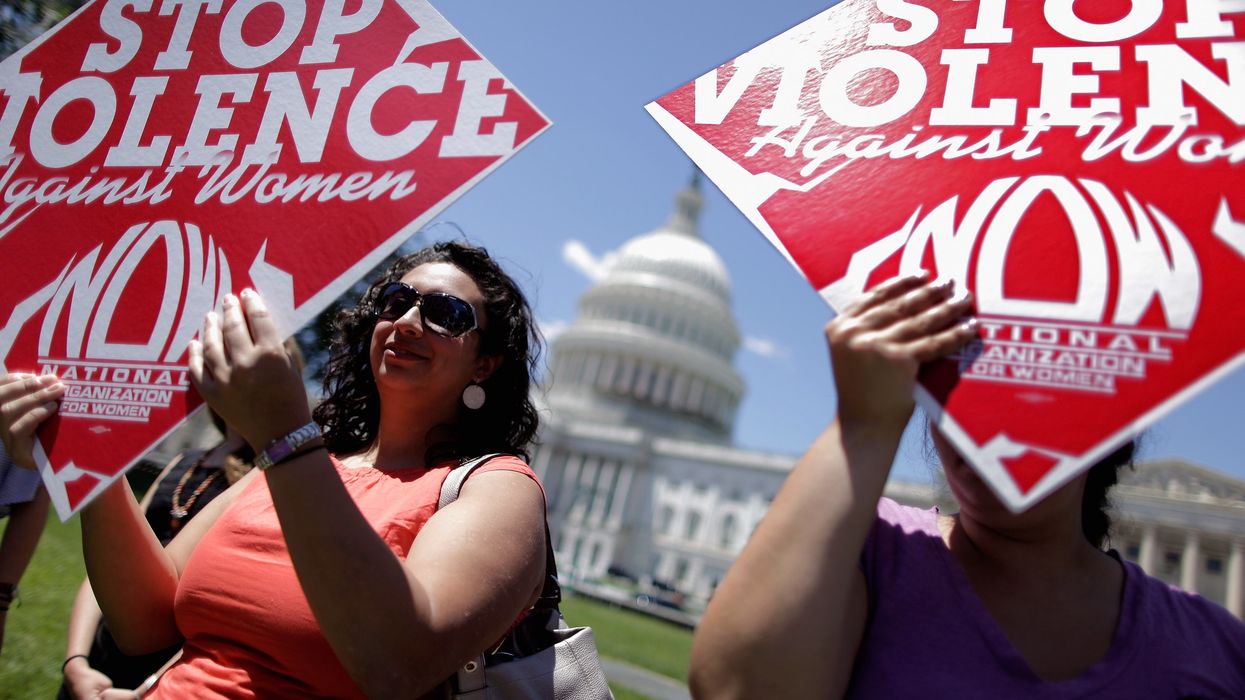Trump Won't Make America Safe Again By Minimizing Domestic Violence
The president’s remarks come at a time when he and his enablers celebrate toxic masculinity while cutting services for the most vulnerable, including domestic violence prevention and support for Survivors.
For those of us who work to prevent domestic violence and support survivors, it was beyond disheartening to hear the president of the United States, one of the most powerful men in the world, say, “If a man has a little fight with the wife, they say, 'This was a crime,' see?" His off-the-cuff remark was in regard to the crime rate in DC and is hard not to interpret as downplaying domestic violence.
It was notable to me that these remarks were made at the Bible Museum, at a conference for the freedom of religious education. Sadly, organized religions have too often been places that have turned a blind eye toward domestic violence, with an attitude that things that happen in the home should stay private or are to be worked out in the home. This, of course, minimizes the power and coercion behind domestic violence. Every day I speak to victims who are in situations where they cannot get help because the violence is happening at home, whether it is because they know what will happen when their abuser posts bail or they will have no place to live, or they do not want to disrupt their children’s lives and pull them out of school. The list goes on and on.
The president’s remarks come at a time when he and his enablers celebrate toxic masculinity while cutting services for the most vulnerable, including domestic violence prevention and support for Survivors. Recently Housing Urban Development funding has been cut, even though the connection between homelessness and domestic violence is clear. The California Inter Agency Council on homelessness reported that 74,779 survivors and 24,721 children of survivors experienced homelessness in 2024, that survivors had a higher rate of return to homelessness after exiting homeless services, that 14% of survivors returned to homelessness versus 10% of the overall homeless population, and that Survivors had a lower rate of exits to permanent housing—14% among survivors versus 18% among the overall homeless population. Yet funding for homelessness prevention at organizations, like the Survivor Justice Center that I run, are being cut.
Just last week I was interviewed about a hand signal that went viral that started when people were trapped at home with their abusers during the pandemic and need a nonverbal way to get help. Many of us are also standing in solidarity with survivors of Jeffrey Epstein and their re-traumatization by the ongoing dismissal of his crimes by the powers that be.
We must stop minimizing abuse just because it happened with someone you know.
Next month is Domestic Violence Awareness Month, where advocates, survivors, and supporters across the nation come together to commemorate those lives that have been lost to intimate partner violence and to continue the work to end domestic violence. I hope we can come together this month to commemorate those lives, and to raise awareness that this is not just a little fight that happens between a husband and a wife at home.
Every day, a friend, colleague, neighbor, community supporter, a good Samaritan, whomever asks me how this could still be happening, how could these ingrained power and control and coercive and abusive behavior be happening. They ask how they can help.
This is why I wrote earlier this year about the blame game. And about the burden that is placed on the survivor. We must stop minimizing abuse just because it happened with someone you know.
You can help. You can recognize the hand signal. You can say “a little fight with the wife” is wrong for so many reasons—even the reference to “the wife” removes agency from the victim spouse and makes it sound like a reference to property. As if we are returning to a far-off time from the 1950s, when domestic violence was not discussed and women were not seen as equal partners, but people that should know their place and be barefoot in the kitchen. We won’t go back.


